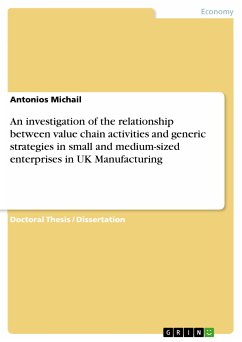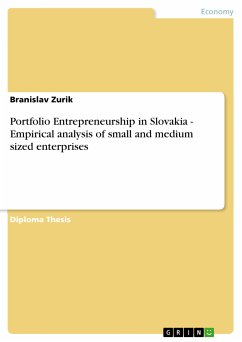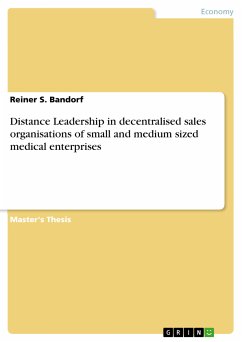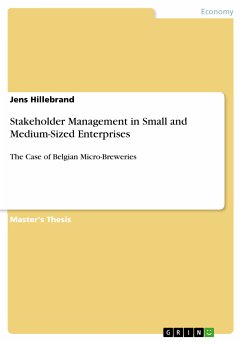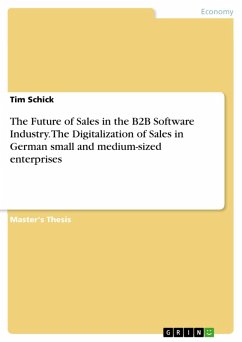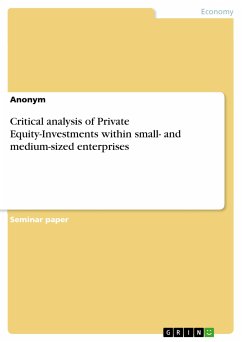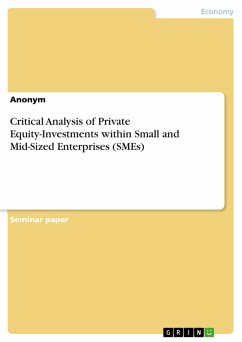Doctoral Thesis / Dissertation from the year 2011 in the subject Business economics - Business Management, Corporate Governance, University of Central Lancashire, language: English, abstract: In this study an in depth investigation of successful competitive strategies for small to medium-sized enterprises (SMEs) is undertaken. The overall aim of this study is to analyse the strategic orientation of UK Manufacturing SMEs. In the process, it will test Porter’s (1980, 1985) theoretical framework of generic strategies and thus evaluate firms’ preferred strategic synthesis. It will, therefore, test the efficacy of the value chain and develop any specific pattern that relates to a combination strategy. The investigation of the above objectives is undertaken utilising a mixed research methodology with the purpose of examining the applicability of existing competitive strategy frameworks (phase 1) and testing a new theoretical framework that incorporates additional dimensions of strategy (phase 2). During phase 1, Porter’s framework is employed to investigate SMEs’ strategic orientation as a means to achieve sustainable competitive advantage. A semi-structured questionnaire is employed and the analysis is carried out by means of factor and cluster analysis to identify strategic variables currently employed by SMEs. During phase 2, the theoretical framework is operationalised to bridge the gap within the literature and existing empirical research. Its purpose is to identify forms of successful competitive strategies of UK MSMEs as they are formulated and implemented in firms’ value chain activities. The data was collected through a number of semi-structured interviews and the analysis was based on data categorisation. The findings indicate that Porter’s (1980) single generic strategies are not the best option for UK MSMEs for gaining competitive advantage and that the competitive strategy of successful MSMEs differs from that of the less successful ones. Successful UK MSMEs develop competitive strategies that are characterised by a combination of strategies as they are formulated within firms’ value chain activities. Although, during the evaluation of strategic synthesis at value chain level, the data analysis demonstrated that not all forms of combination strategies can deliver a high performance. One of the significant findings to emerge from this study is that the value chain framework is essential when analysing forms of successful competitive strategies of UK MSMEs. The results of this investigation also show that generalisations and previous recommendations regarding successful MSMEs competitive strategy should be interpreted with caution.

